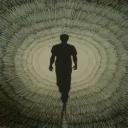Yahoo Answers is shutting down on May 4th, 2021 (Eastern Time) and beginning April 20th, 2021 (Eastern Time) the Yahoo Answers website will be in read-only mode. There will be no changes to other Yahoo properties or services, or your Yahoo account. You can find more information about the Yahoo Answers shutdown and how to download your data on this help page.
Trending News
Why did the Japanese attack pear harbor? ?
They immediately made the war far more difficult for themselves by bringing the US into the war. If they were bent on destroying Americans why didn’t they wait until the war was almost won (if they could have won) then attack?
Would the US not have entered the war if not for the attack on pearl?
24 Answers
- 2 months ago
Pressures among Japan and the US had been ascending for quite a long time. The US was against Japan's intrusion of China, and there had been various episodes beween the two nations. The US was giving informal guide to China, including military consultants, and they had started slapping new authorizes on Japan, in particular a ban of fuel oil. The Japanese figured, presumably effectively, that it wouldn't have been long before the US did battle with them. So they chose to start the battle at an at once based on their personal preference. They trusted that the assault on Pearl would be mentally obliterating to the Americans and make them reconsider. However, more solidly, they expected to decimate America's Pacific armada. To assault Japan, the US required a Navy, and the assault on Pearl should burrow out that Navy. The reasoning was that it would require some investment to modify their broke armada. In that time, Japan would ideally merge its benefits in East and Southeast Asia and be in a superior situation to battle the US.
- ?Lv 42 months ago
Because USA had imposed an oil embargo on Japan as a direct result of Japan's expansionism and appalling atrocities in China.
The Japanese military figured that the only way to lift the oil embargo was either through diplomatic negotiations or through war. Diplomatic negotiations were tried but basically got nowhere so the more militaristic elements within the Japanese government and military got the upper hand and convinced the emperor to launch a crippling blow against the U.S navy.
The successful British attack against the Italians at Taranto in 1940 convinced the Japanese military that it was possible.
FDR knew an attack was more than likely coming but not exactly where or when. Crucial mistakes were made on Hawaii on the day of the attack. The radar returns (signals) were ignored and presumed to be an incoming flight of American B-17s. A couple of fighters should have been sent out to make sure and radio back. That could have got the U>S aircraft into the air and limited the damage to both the ships at Pearl and the airfields and oil stocks ...All incompetence and complacency. There was no conspiracy to allow it to happen.
If the Pearl harbour attack had not occurred then FDR probably would have stayed out of the war until American interests were directly threatened or a large American passenger ship sunk, but USA would eventually have entered the war at some point.
- garryLv 62 months ago
should be asking why did america allow pearl harbour to be attacked , they new the japanese would attack .!!!!
- Gray BoldLv 72 months ago
Planning had been underway for some time on an attack on the "Southern Resource Area" to add it to the Greater East Asia Co-Prosperity Sphere Japan envisioned in the Pacific.
The Philippines, at that time an American protectorate, were also a Japanese target. The Japanese military concluded an invasion of the Philippines would provoke an American military response. Rather than seize and fortify the islands, and wait for the inevitable U.S. counterattack, Japan's military leaders instead decided on the preventive Pearl Harbor attack, which they assumed would negate the American forces needed for the liberation and reconquest of the islands. (Later that same day [December 8, local time], the Japanese indeed launched their invasion of the Philippines).
- How do you think about the answers? You can sign in to vote the answer.
- Anonymous2 months ago
Tensions between Japan and the US had been rising for years. The US was opposed to Japan's invasion of China, and there had been a number of incidents beween the two countries. The US was providing unofficial aid to China, including military advisers, and they had begun slapping new sanctions on Japan, most importantly an embargo of fuel oil. The Japanese figured, probably correctly, that it was only a matter of time until the US went to war with them. So they decided to begin the war at a time and circumstance of their choosing. They hoped that the attack on Pearl would be psychologically devastating to the Americans and make them think twice. But more concretely, they hoped to devastate America's Pacific fleet. To attack Japan, the US needed a Navy, and the attack on Pearl was supposed to hollow out that Navy. The thinking was that it would take the US some time to rebuild their shattered fleet. In that time, Japan would hopefully consolidate its gains in East and Southeast Asia and be in a better position to fight the US.
- Anonymous2 months ago
Japanese Imperialism had designs on controlling the Pacific. The US presented the greatest threat to prevent this. Pearl was the obvious target to do the most damage w/ a sneaky first strike.
- Anonymous2 months ago
Because they thought that by destroying the US's Pacific fleet they would knock the US out, as concerns Japanese ambitions.
- ?Lv 62 months ago
The very idea that a country as tiny as Japan would challenge America to a fight and have a chance of winning is absurd. Yet, this is the way it's told in the history books.
The fact is that Roosevelt provoked the attack from Japan to justify going to war in Europe.
His New Deal Programs were failures and he needed to stimulate the economy to get people back to work after the Great Depression. Also, Britain was obsessed with controlling Europe and was trying to provoke a fight between Germany and the Soviet Union. On top of that, Zionism had declared war on Germany weeks after Hitler became Chancellor. And with Jews embedded so profoundly in the Roosevelt administration, they had a strong influence on his political decisions.
Beginning around 1935 Roosevelt began stirring up conflicts between Poland and Germany that would expand into an international issue that he could get America involved in.
However, America was officially maintaining neutrality and so FDR couldn't get Congressional approval to get involved in a war that was on the other side of the world and of no interest to United States policy.
If FDR couldn't take America to the war, he would bring the war to America.
Promising to sell Japan much-needed oil and then reneging at the last minute resulted in Japans's attack on Pearl Harbor.
Japan's attack was retaliation. Because it was provoked by Roosevelt, it made him guilty of treason for provoking an enemy attack on his own country.
- Anonymous2 months ago
to try and stop the USA from being the worlds Bully
That was what FDR wanted to get into WW2 to make more Money for the USA he Knew time and date
Yes he did Know Clue in 2012 the Winds execute File was released in Australia believed to be the Only Complete File on Pearl Harbour the same day MI6 asked the Australian Government to reclassify it for another 70 years who does it Protect only FDRThe Navy has traditionally followed the rule that, when international relations are critical, the fleet puts to sea. That is exactly what Admiral Kimmel did. Aware that U.S.-Japanese relations were deteriorating, he sent 46 warships safely into the North Pacific in late November 1941 — without notifying Washington. He even ordered the fleet to conduct a mock air raid on Pearl Harbor, clairvoyantly selecting the same launch site Admiral Yamamoto chose two weeks later.When the White House learned of Kimmel's move it countermanded his orders and ordered all ships returned to dock, using the dubious excuse that Kimmel's action might provoke the Japanese. Washington knew that if the two fleets met at sea, and engaged each other, there might be questions about who fired the first shot.Kimmel did not give up, however. With the exercise cancelled, his carrier chief, Vice Admiral William "Bull" Halsey, issued plans for a 25-ship task force to guard against an "enemy air and submarine attack" on Pearl Harbor. The plan never went into effect. On November 26th, Admiral Stark, Washington's Chief of Naval Operations, ordered Halsey to use his carriers to transport fighter planes to Wake and Midway islands — further depleting Pearl Harbor's air defences.the Final StrawOn 29 November, US Secretary of State Cordell Hull (Hull, Cordell) showed a reporter from The New York Times a message saying that Pearl Harbor was going to be attacked on 7 December. As the attack approached, the American government received information from numerous sources that 7 December would be the day. On 1 December, Naval Intelligence in San Francisco worked out from news reports and signals picked up by shipping companies that the Japanese fleet that had disappeared from home waters was then to the west of Hawaii. Those who believe that Roosevelt knew about the attack all along maintain that a number of other reports say that the Japanese would strike at Pearl Harbor, but they have yet to be declassified.Nave and Rusbridger."...on 26 November 1941, Churchill's private secretary Anthony Bevir sent by hand to the American Embassy their second message for the day, to be transmitted to Roosevelt accompanied by a note: "I enclose a telegram from the Former Naval Person to the President for dispatch as soon as possible. I am so sorry to trouble you at this hour."Of all Churchill's voluminous correspondence with Roosevelt during World War II, this is the one message that cannot be read, since the file containing it is withheld from the Public record office in London for the next seventy years. According to Britain's Foreign Secretary, to release it would harm national security."U.S.Army Inquiry proceedings into Pearl Harbor, July - October 1944........"On 26 November there was received specific evidence of the Japanese intention to wage offensive war against Great Britain and the United States"But no details of what this "specific evidence" consisted of were placed before the inquiry.Page 141, paragraph7,.............and................ 142 paragraph1.U.S.Navy Inquiry into Pearl Harbor, July to October 1944.Admiral Kimmel: "Do you recall whether on or about 26 November you received information from the office of naval intelligence that gave specific evidence of Japan's intention to wage offensive war against Britain and America?"Admiral Stark refused to answer saying:" It would involve the disclosure of information detrimental to the public interest."all the above if from Official US Military archives made available under Freedom of Information







